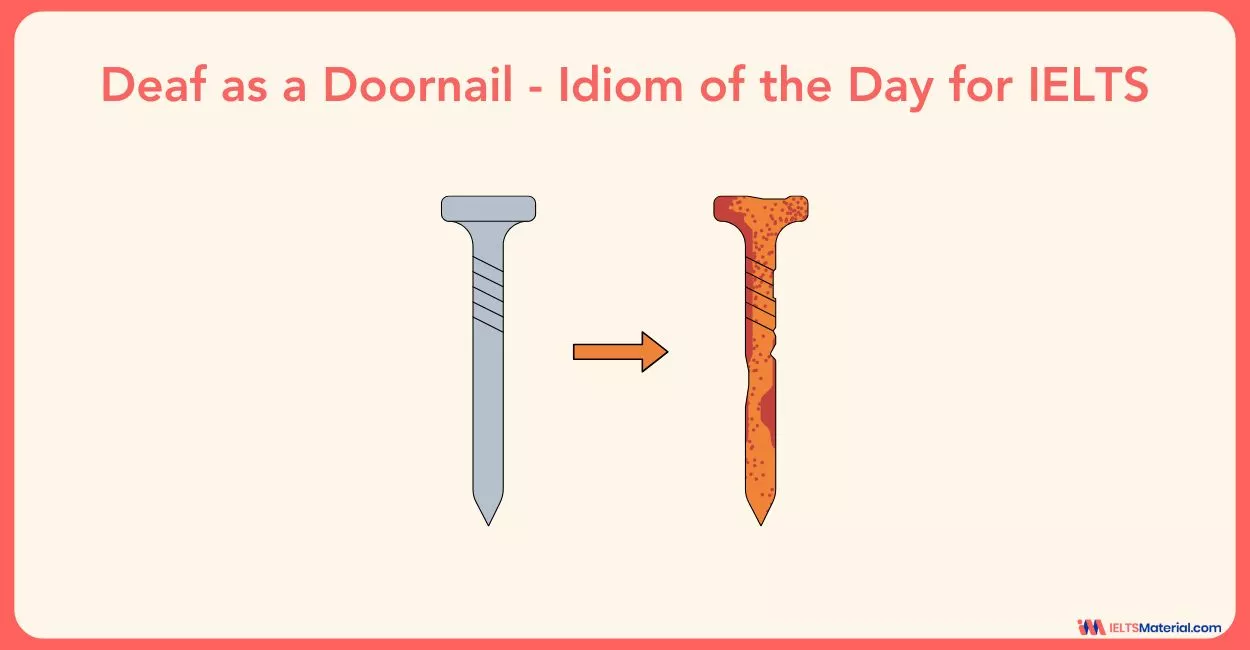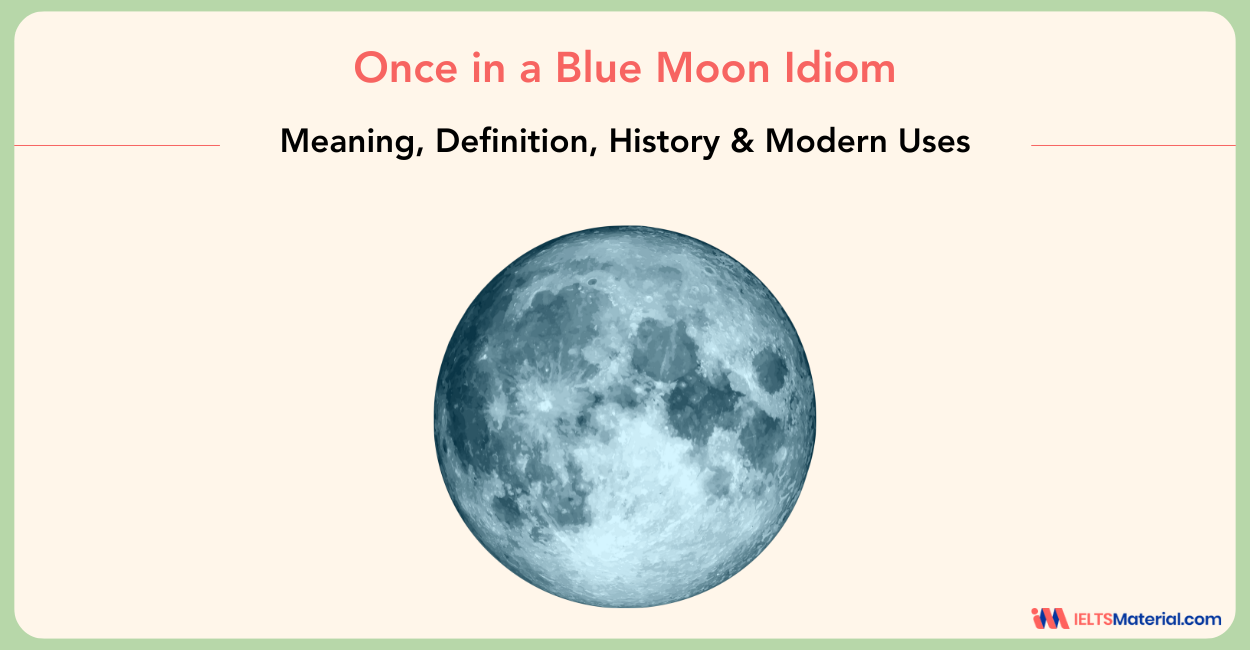Breathe Your Last - Idiom Of The Day For IELTS Speaking
4 min read
Updated On
-
Copy link
Explore the idiom “breathe your last” for IELTS Speaking 2025. Understand its meaning, context, synonyms, and how to use it in emotional storytelling and cue card answers. Includes vocabulary tips, practice exercises, and sample Band 8+ responses.
Table of Contents

Limited-Time Offer : Access a FREE 10-Day IELTS Study Plan!
When preparing for the IELTS Speaking test, using idiomatic expressions naturally and appropriately can enhance your Lexical Resource score. Today’s idiom, “breathe your last,” is particularly useful when describing emotional experiences or talking about life and death in storytelling or reflective discussions.
Meaning of “Breathe Your Last”
Definition:
To die or pass away.
It’s a poetic or literary way of saying that someone has died, often used to add emotional depth to a story.
In simpler terms, when someone "breathes their last," it means they take their final breath, indicating the moment of death.
Origin of the Idiom: “Breathe Your Last”
The idiom “breathe your last” has its roots in classical English literature and religious texts. The phrase refers to the last breath a person takes before dying. In many cultures, the final breath is symbolically associated with the soul leaving the body. Writers and poets have long used this phrase to describe the solemn moment of passing away, especially in emotional or dramatic contexts.
Today, the idiom is still used in literature, films, obituaries, and emotional storytelling to convey death respectfully or dramatically.
Usage of “Breathe Your Last” in Context
Let’s look at some example sentences showing how the idiom is typically used:
- “She breathed her last in the early hours of the morning, surrounded by loved ones.”
→ Used in a respectful, emotional way. - “After a long illness, he finally breathed his last.”
→ Common in storytelling or obituaries. - “The soldier breathed his last on the battlefield, holding a photo of his family.”
→ Evokes powerful imagery and emotional storytelling. - “As the sun set, the old man breathed his last in peace.”
→ Often used in novels or poetic narration.
Want to master more high-band IELTS vocabulary for the IELTS exam? Book a Free Demo Class today.
When to Use the Idiom?
You can use “breathe your last” in the IELTS Speaking test, especially in Part 2 or Part 3, when you are:
- Describing a sad or memorable event
- Talking about death in literature, film, or personal experience
- Reflecting on life, health, or aging
- Discussing healthcare, emotions, or coping with loss
Sample Answer Using the Idiom
IELTS Speaking Part 2 – Cue Card:
Describe a sad memory that you have.
You should say:
– When it happened
– What happened
– How you felt
– And explain how you dealt with that memory
Sample Answer:
“One of the saddest moments in my life was when my grandmother passed away three years ago. She had been ill for several weeks, and despite medical care, her condition didn’t improve. One night, I got a call from my uncle saying she had breathed her last. I remember feeling completely numb—it was like a light had gone out in our family.
For weeks, I struggled with the loss. But over time, I started focusing on the happy memories and lessons she left behind. Talking about her with my family helped me cope. Though I still miss her, remembering her warmth gives me peace.”
Synonyms and Related Expressions
| Idiom/Expression | Meaning | Example Sentence |
|---|---|---|
| Pass away | Die (polite) | “He passed away in his sleep.” |
| Give up the ghost | Die (literary) | “The machine gave up the ghost after years of use.” |
| Kick the bucket | Die (informal/slang) | “He finally kicked the bucket at 90.” |
| Meet one’s end | Die (tragic ending) | “The hero met his end in the final battle.” |
| Cross over | Die (spiritual tone) | “Many believe the soul crosses over to another realm.” |
Grab the newly launched Vocabulary for IELTS (Essential words for popular topics in IELTS) to level up your preparation.
Common Mistakes to Avoid
- Incorrect tense: It’s always in the past,“breathed your last,” not “breathe your last” when referring to an actual event.
- Wrong context: Don’t use it for light-hearted or humorous stories.
- Overuse: Use idioms sparingly; don’t crowd your answer with too many in one response.
IELTS Vocabulary Tip
Using idioms like “breathe your last” in your IELTS Speaking answers shows examiners that you’re comfortable with nuanced, expressive language. This demonstrates a wide lexical range, a key factor in scoring Band 7 or higher. However, make sure idioms are appropriate to the IELTS Vocabulary tone and topic of your response.
Exercise Time
1. Multiple-Choice Question
Q1:
“This is where I was born and where I will ______________,” said the old woman.
a) breathe my last
b) time after time
c) bone of contention
d) through and through
Correct Answer: a) breathe my last
2. Fill-in-the-Blank
Q2:
“After saying goodbye to everyone, he lay down peacefully and ___________.”
a) played to the gallery
b) breathed his last
c) jumped the gun
d) burned the midnight oil
Correct Answer: b) breathed his last
Overall, the idiom “breathe your last” adds emotional depth and formality to your speech. It’s best suited for serious or reflective IELTS Speaking responses. Whether you're sharing a personal loss, describing a novel, or discussing healthcare topics, idioms like this can make your answers sound more natural and fluent, just be sure to use them appropriately and sparingly.
If you're aiming for top scores, follow the IELTS Exam Preparation Tips for Band Score of 8+ to further enhance your vocabulary and overall test performance.
Also check:
Explore IELTS Resources

Start Preparing for IELTS: Get Your 10-Day Study Plan Today!
Recent Articles

Kasturika Samanta

Prity Mallick

Nehasri Ravishenbagam





Post your Comments